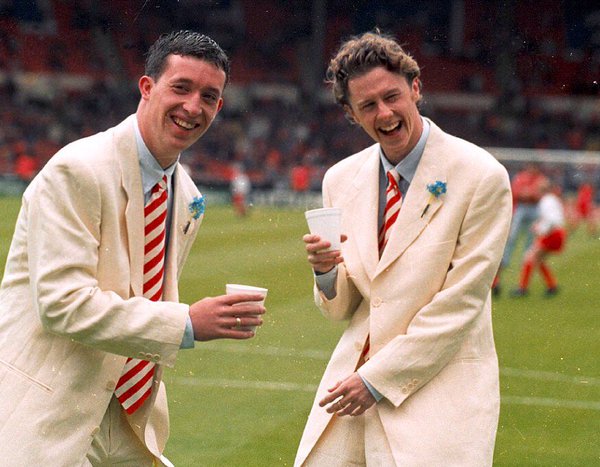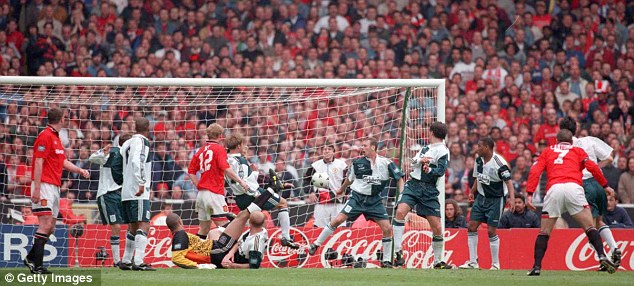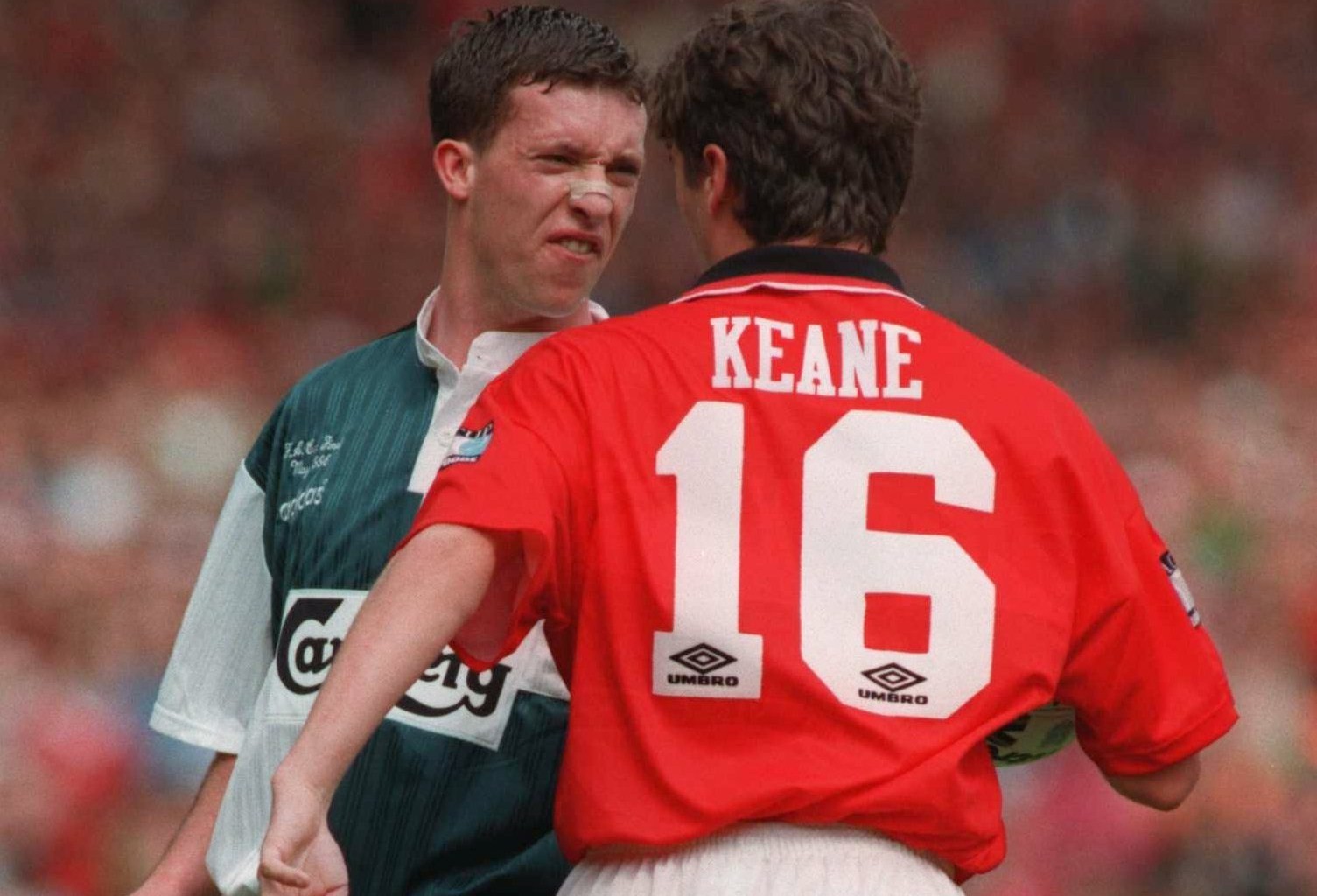Can a five-year-old child experience soccer heartbreak? Can a charismatic Frenchman deliver a sharp dagger to the chest of someone six thousand miles
Can a five-year-old child experience soccer heartbreak? Can a charismatic Frenchman deliver a sharp dagger to the chest of someone six thousand miles away? Can that dagger, drenched in a vengeful tonic, shape how someone views life? The answer to all of these questions is a resounding yes.
The day was the 11th of May, 1996. After one of the wildest league campaigns in English history wound to a close, Liverpool and Manchester United were set to meet at Wembley in the FA Cup Final. In renewing hostilities on such a grand stage, the two clubs were set to write the next chapter in one of the football world’s great rivalries.
United were going for the double, as pre-knighthood Alex Ferguson and his side were the freshly crowned champions of the Premier League. The exuberant and in-form Spice Boys of Liverpool were sniffing an upset.
I woke up at six on a fittingly gray Saturday morning in the coastal village of Aptos, California, buzzing with anticipation at this, my first full and true footballing experience. Earlier that week, I had been promised a trip to the local English pub for Cup Final Day. It felt like Christmas in May. I was the happiest little boy in the world.
I’d fallen in love with Liverpool that season, for reasons that are still somewhat mysterious. They were the first team I remember watching, and cloudy red memories of Robbie Fowler sliding into the net and Stan Collymore “closing in” (just over a month prior in a 4-3 win over Newcastle at Anfield, arguably the greatest game in Premier League history) tell me that I was never really given a choice in the matter.
The British expats in my American life provided me with ample history lessons at an incredibly young age. They told me that I’d pledged my allegiance, by complete chance, to a club that was once the crown jewel of not just England, but all of Europe. They grounded me though, and made it clear that Liverpool had since sunk to a level far from jewel status, having been “knocked off their perch” right around the time I was conceived. The expats educated me and provided me with so much, including one truly invaluable piece of information.
“No matter who you support, lad, Liverpool, Arsenal, Forrest, Wednesday… remember that us football supporters all have one thing in common.
We ALL hate the scum.
We ALL hate Manchester United.”
At a quarter to seven on that foggy spring morning, my Arsenal loving father and I hopped into a Volvo DL and drove less than a mile from his Aptos apartment to the Britannia Arms, a pub owned by an ardent Milwall supporter. The Brit (as it was affectionately known by the locals) was not only showing the Cup Final on closed-circuit pay-per-view, but serving full English breakfast at half-time, complete with bangers and blood pudding.
As we pulled up, the Brit was already jam-packed. We walked through the doors, and the air reeked of cigarette smoke and spilt pints. It was loud and rowdy, and close to a hundred morning drunks shot hostile glares right into my five-year-old eyes as we searched for a couple of seats. I was hearing strange accents and rude muttering, as well as far from flattering statements about my yellow LFC top with Carlsberg across the front. It was around this time, just moments away from kickoff, when I realized that I was one of just a handful of Liverpool supporters in the entire pub. Perhaps I had hit this realization upon entering the pub. Maybe I just didn’t want to believe it to be true.
Had my expat family lied to me? Who were these people? I thought everyone hated Manchester United! I thought it was our one commonality as football fans, hating the scum. Why would all these men support something that everyone was supposed to despise?
I learned a lot that morning at The Brit. I learned that an evil empire becomes such with power in numbers. These people were arrogant, mean, and by golly were they drinking. They just kept piling in, one after another, constantly singing this “glory glory” tune that made my ears feel like they were going to bleed.
The match was relatively uneventful. The breakfast was perfect, tasty yet boring in that quintessential English way. The Liverpool players showing up to the stadium donning white suits had really been the only highlight for the Merseysiders.

‘Spice Boys’ Robbie Fowler and Steve McManaman
During the second half, a small fight broke out between four United supporters inside the pub. Everybody seemed so angry, as nervousness combined with awe in my youthful brain, creating a squeaky bum time like no other.
It was the 86th minute of a nil-nil affair. United had a corner. A buoyant blonde boy named David Beckham (wearing the number 24) got ready to take the kick. As Beckham came through the ball, it floated into the penalty area, the out-swinging whip taking it away from goal. Liverpool’s much maligned goalkeeper, David “Calamity” James, came out flapping like a wounded bird.
The next five seconds felt like they took five hours, and all in slow motion.
James crashed theatrically to the floor amongst a crowd of bodies as his tepid punch ricocheted and sent the ball bouncing to the edge of the box. Waiting patiently in the perfect spot was a man by the name of Eric Cantona. With one sublime move of his right foot, backing up while seemingly lifting and swinging all at the same time, the French magician cannoned home a stunning volley, straight through a line of four Liverpool players, putting United on top, and sending Wembley Stadium and a pub in Northern California into simultaneous states of delirium.
It felt like my ribs had sunk into my stomach, my heart shrinking as beer flew everywhere amidst the jubilant screams of expatriate United supporters.
A few minutes later, the final whistle blew. The place erupted again, and grown men profanely made fun of me, a five-year-old child, as we made our way to the parking lot.
It was Cantona’s day, as he became the first player not from Great Britain or Ireland to lift the FA Cup as a captain, wearing the armband in place of the injured Steve Bruce. It was also the end to a surreal soccer chapter that saw Cantona banned from English Football for eight months for his infamous kung fu kick of a Crystal Palace supporter, then plan to leave the club, eventually get persuaded to stay by Alex Ferguson, then make his triumphant return to the squad, then fall out of favor for much of the season, only to inevitably return to the first team and help the Red Devils become the first ever club to win the double twice, doing it in the most epic fashion.
Millions called it “magnifique”. I found it all rather sickening.

Cantona’s Wembley winner, one of the great FA Cup Final goals
On the short drive home, a small tummy-ache hit, perhaps a combination of the match result and the greasy, albeit mighty delicious breakfast. I tried to comprehend what my body was telling me. My stomach and heart may have been trying to send a message that my brain refused to accept, something along the lines of “don’t do this to yourself” or “quit now”.
I will always look back to that day as the experience that warped my soul. It was the day I pledged my lifelong allegiance to the beautiful game. It was the day when I learned how cruel that game could be.
It was the day that fueled an infinite fire of love and devotion for one club, and an endless supply of unfiltered hatred for another. Whenever Liverpool play United, whether at Anfield, Old Trafford, Millennium, Wembley, or even on a FIFA video game screen, I can’t help but reminisce on the 11th of May, 1996. When I picture all those United fans from that day, all I can think about is getting them back, getting even and over whenever the opportunity presents itself.
So let’s sing. Let’s dance. Let’s keep the flames of our first passions burning. And above all, let’s win.
